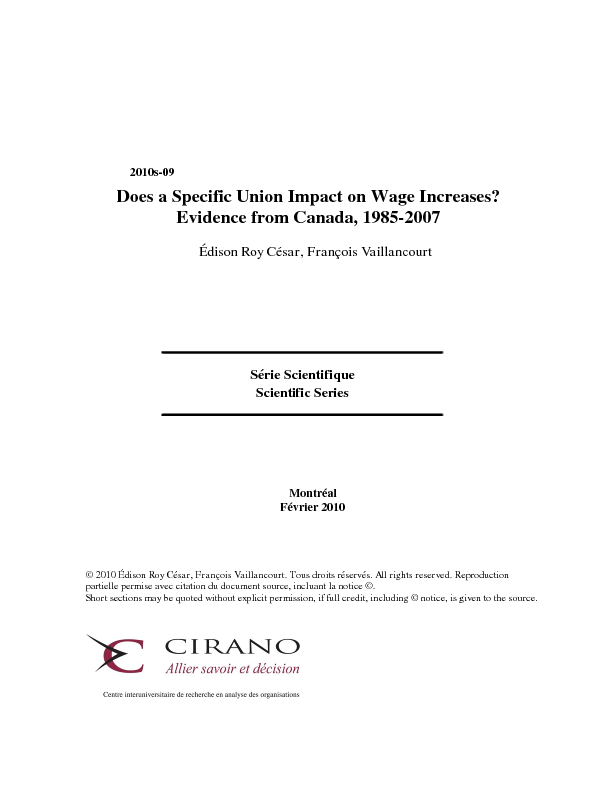Does a Specific Union Impact on Wage Increases? Evidence from Canada, 1985-2007
The purpose of this note is to examine the effect of belonging to a specific union on negotiated wage increases, given unionisation status. The data consist of all collective agreements with more than 500 employees, which were signed in Quebec (N=632) or Ontario (N=1349) during the 1985-2007 period. The model used is a standard wage equation with the negotiated rate of increase of base wages, annualized as the dependent variable and four dichotomous variables for a specific union, the CPI and the unemployment rate two quarters before the collective agreements, the presence or not of a cost of living agreements in the collective agreement and eighteen industrial dichotomous variables. We find with one exception no evidence that one union is better than another in obtaining higher wage growth.
[ - ]




